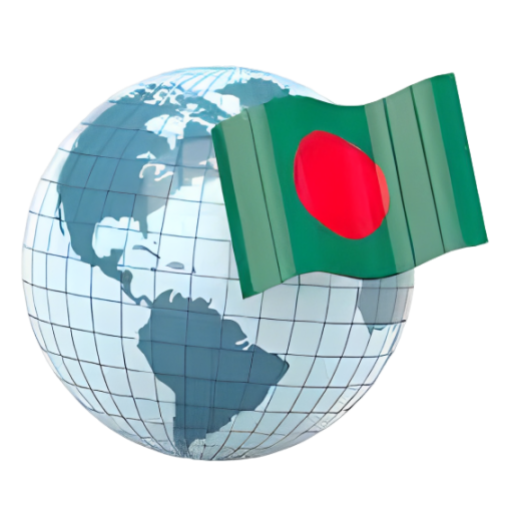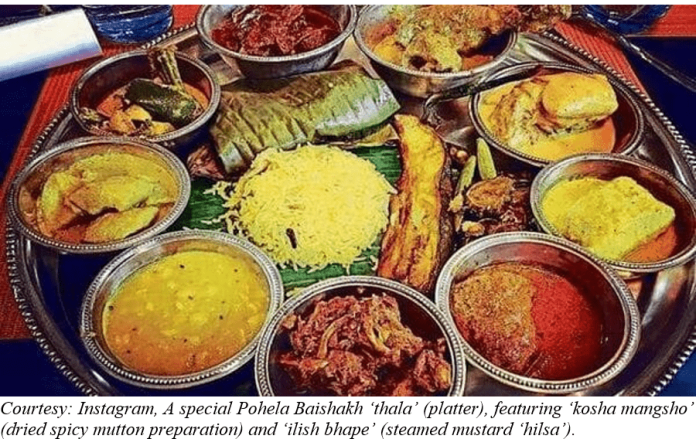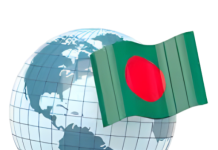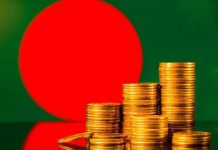“এসো হে বৈশাখ, এসো, এসো” – With this song of Kabiguru Rabindranath Tagore, Bengalis around the world welcome and celebrate Pohela Boishakh (পহেলা বৈশাখ), the first day of the Bengali month Boishakh – the start of the Bengali New Year, or Nobo Borsho (নববর্ষ). This year, the beginning of the Bengali year 1431 was on April 14, 2024.
It is generally agreed that the ancient Bengali calendar was modified in 1556 during the rule of Mughal emperor Akbar to align the tax year with the harvest season. It was named “Fosholi Shon”, which means crop year, as the calendar was deeply linked to agricultural work and crop collection. The Bengali calendar is basically a combination of the lunar Islamic calendar and the solar Hindu calendar. Later on, people began to call it simply `Bangla Shon’, or Bengali calendar. On this day, many businesses close old ledgers and open a new ledger for the new year which is called ‘Haal Khaata’ (হাল খাতা).
Pohela Boishakh is celebrated with much fervour and enthusiasm among the Bengali diaspora around the world. It promotes a feeling of cultural pride and identity, especially for the people living far away from their motherland. Traditional dress, music, dance, art and food take centre stage on this day. A lot of people eat Panta bhaat (পান্তা ভাত) (overnight fermented rice) with bhortas (ভর্তা) (a mash made with vegetables or fish, combined with onions, chilli and mustard oil). Bangladesh’s national fish Hilsa (ইলিশ), is also considered a must-have dish for many on this special occasion. ‘Panta ilish’ (পান্তা ইলিশ) is the signature dish of the festival of Pohela Boishakh. It is a dish that combines a bowl of panta bhaat—cooked and soaked rice—with fried Hilsa fish.
Pohela Boishakh is a time for new beginnings, it is a time for embracing Bengali tradition. Bengalis celebrate this occasion by wearing their traditional attires. Women wear white cotton sarees with red borders – Jamdani and Tangail sarees are common. Some of them are seen putting flower crowns on their heads. Girls dress mainly in colourful salwar kameez. Most of them wear traditional ornaments and accessories along with their dresses. Men wear panjabis or fatuas, with traditional designs on them, imprinted or embroidered.
Pohela Boishakh is a time for displaying the traditional handicrafts for which Bangladesh is known for. They include pottery, weaving, embroidery, and bamboo crafts. Weavers in Dhaka, Tangail, Pabna, and other places produce handloom sarees while Comilla is famous for Khadi. Besides, Nakhshikantha, Shital Paati, and jewellery are also popular handicrafts of Bangladesh. Nakhshikantha, an embroidered quilt, is a very popular form of handicraft. There are also jute crafts, pottery products, and papercrafts.
In North America and other places, the Bengali diaspora communities celebrate the Pohela Boishakh on different dates during weekends. In Dallas metropolis of Texas, three major Boishakhi Melas were held this year where thousands of people joined. A brief pictorial description of these three events follows.
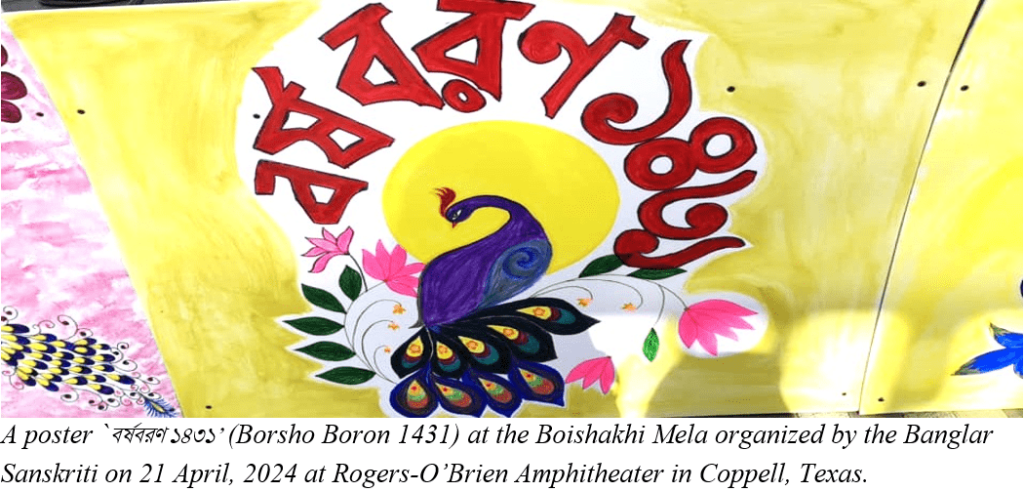
The first Boishakhi Mela this year in greater Dallas was organized by the Banglar Sanskriti on 21 April, 2024 at Rogers-O’Brien Amphitheater in Coppell, Texas. This mela has the influence of the style and substance of Chhayanaut, Bangladesh as Murshed Khan, the main organizer of Banglar Sanskriti is from this prestigious cultural institute. Hence, the Banglar Sanskriti event reminds one of the Pohela Boishakh event of Dhaka’s Ramna Batamul. Chhayanaut, founded in 1961, has been organizing the traditional, extravagant cultural festivity of Pohela Boishakh at Ramna Batamul, Dhaka, every year since 1967.
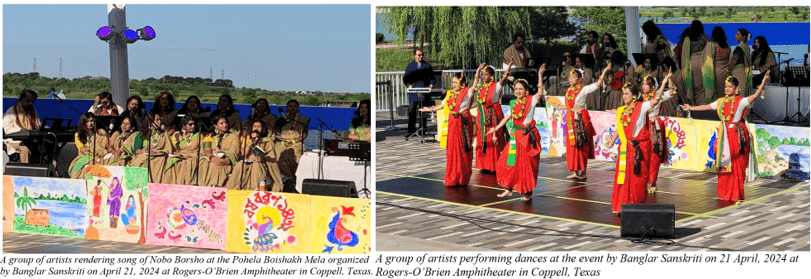
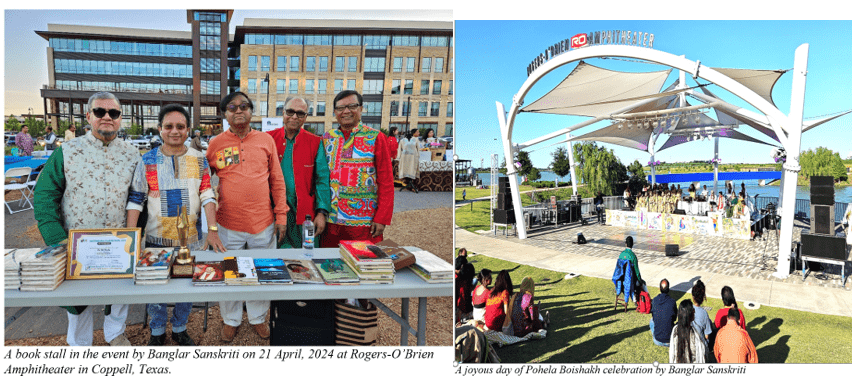
This year’s second Boishakhi Mela (বৈশাখী মেলা) in greater Dallas was organized by the Bangladesh Expatriate Society of Texas (BEST) on 27 April, 2024 at Southfork Ranch in Parker, Texas. Contrary to the traditional outdoor Boishakhi mela, this event by BEST is being held indoor for several years in a large venue, the legendary Southfork Ranch, made famous by the television series ‘Dallas’. It is a premier special events venue and meeting destination in the Dallas Metro Area.
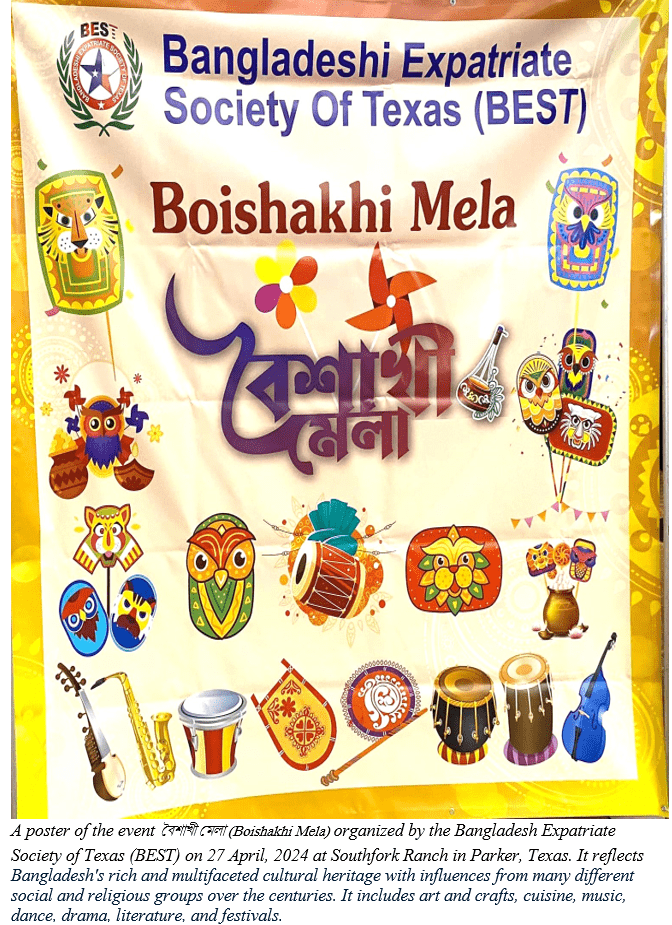
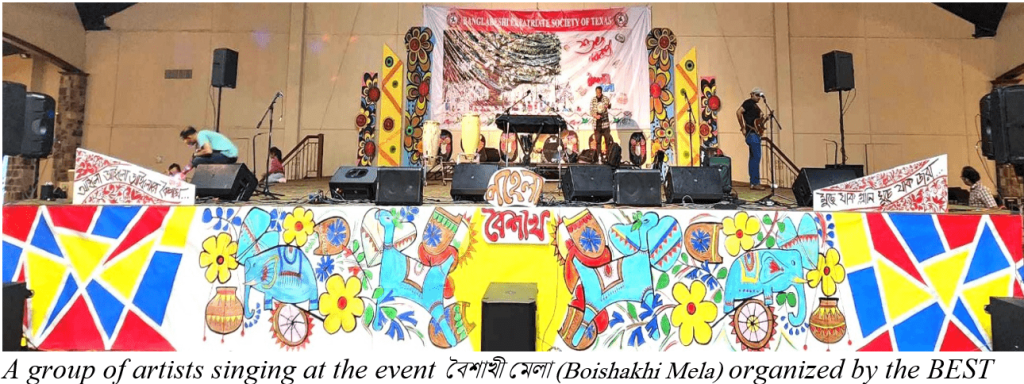
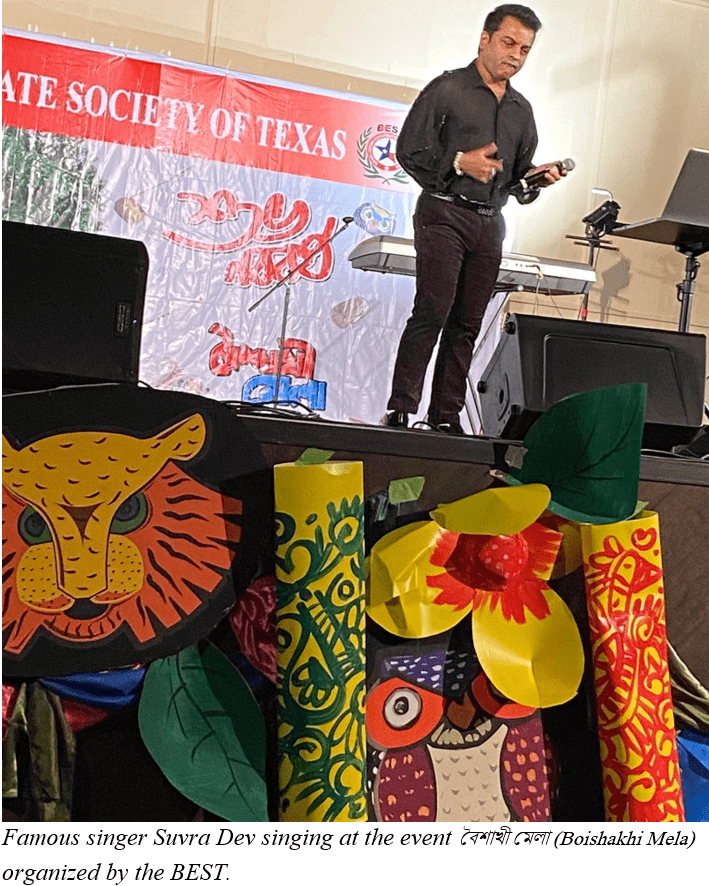
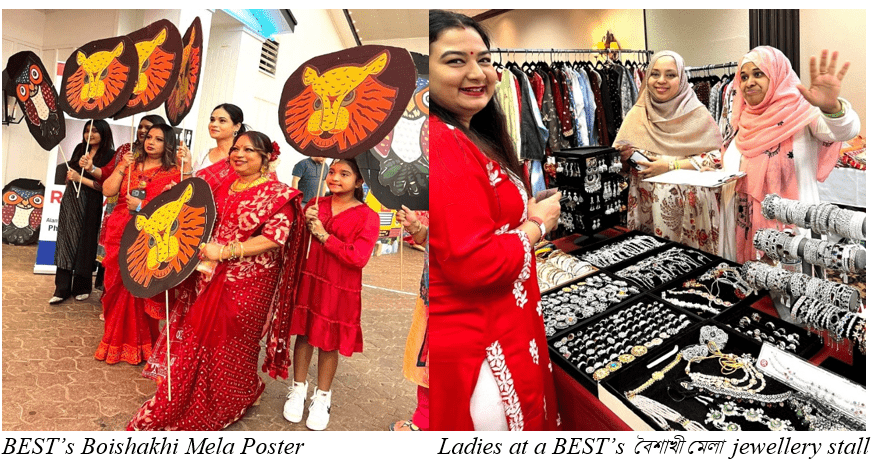
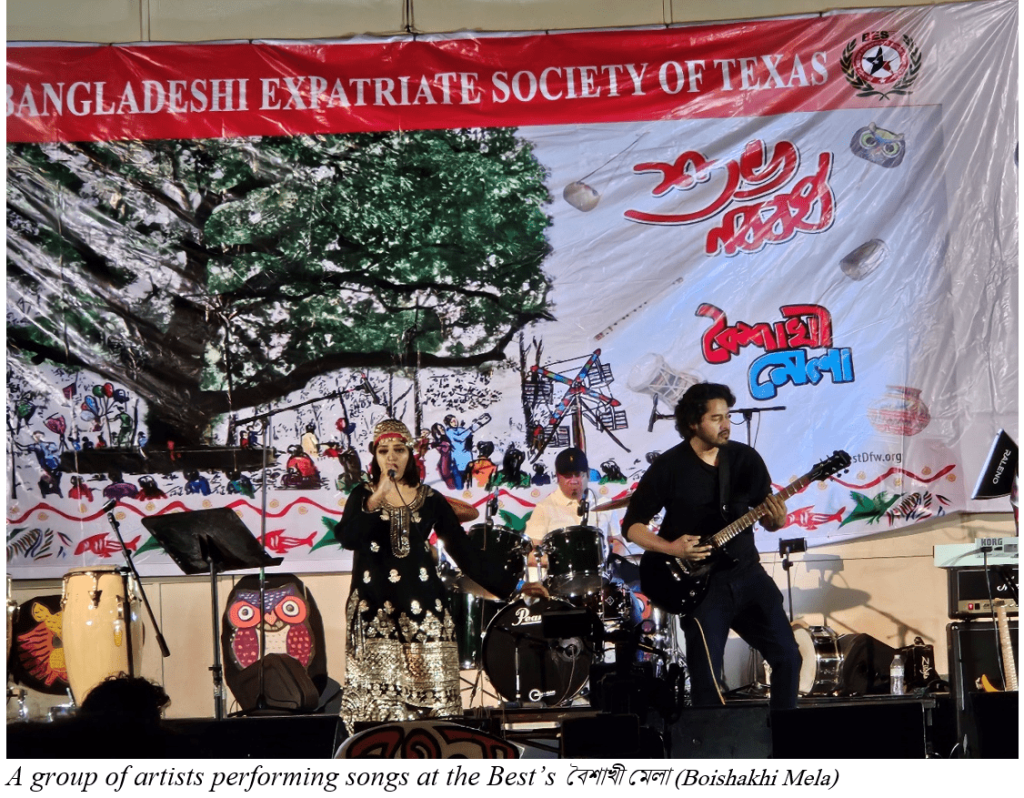
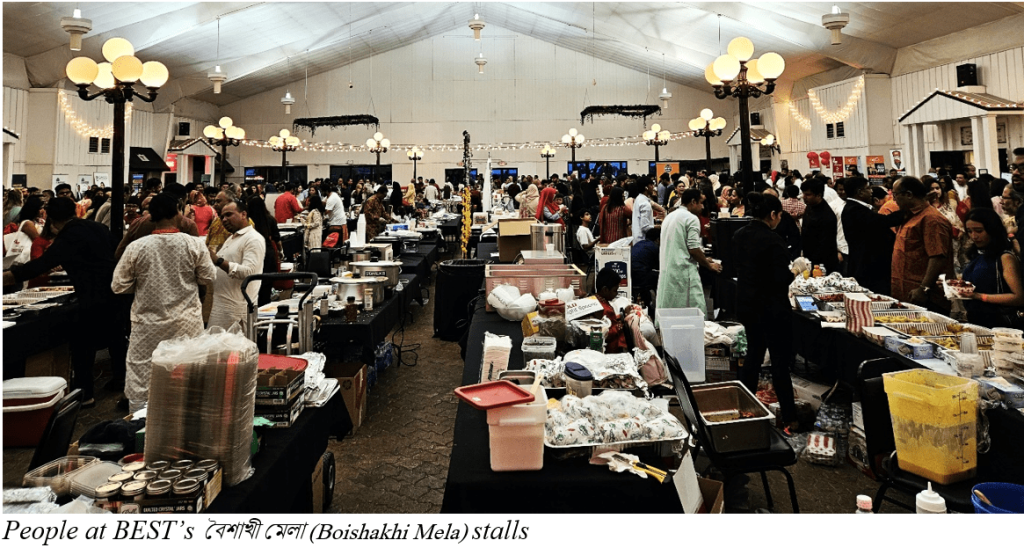
This year’s third major Boishakhi Mela (বৈশাখী মেলা) in greater Dallas was organized by the main community organization in the region – the Bangladesh Association of North Texas (BANT) on 26 May, 2024 at Plano Amphitheater in Plano, Texas.
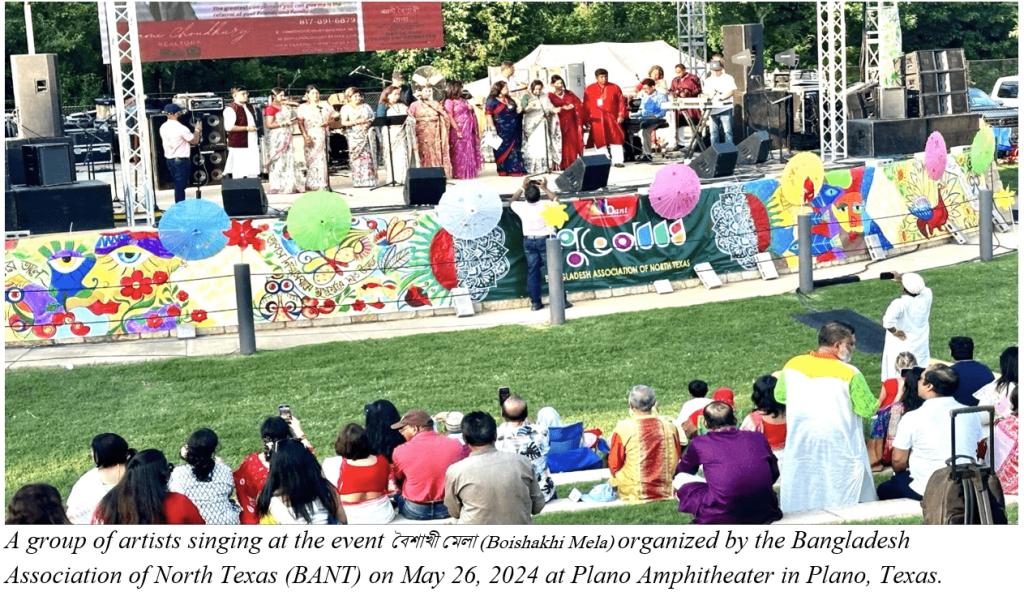
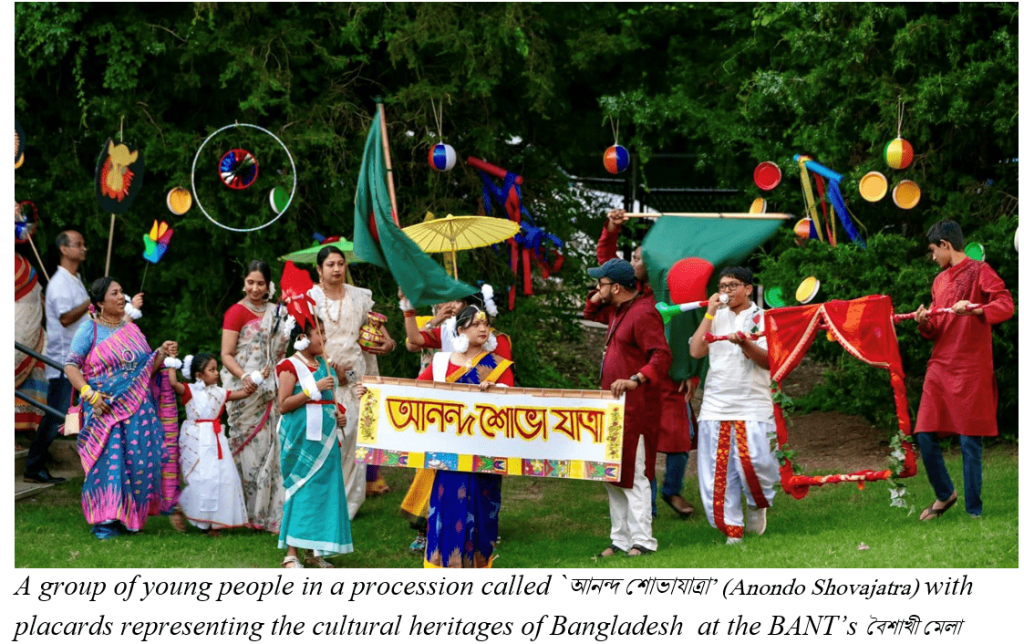
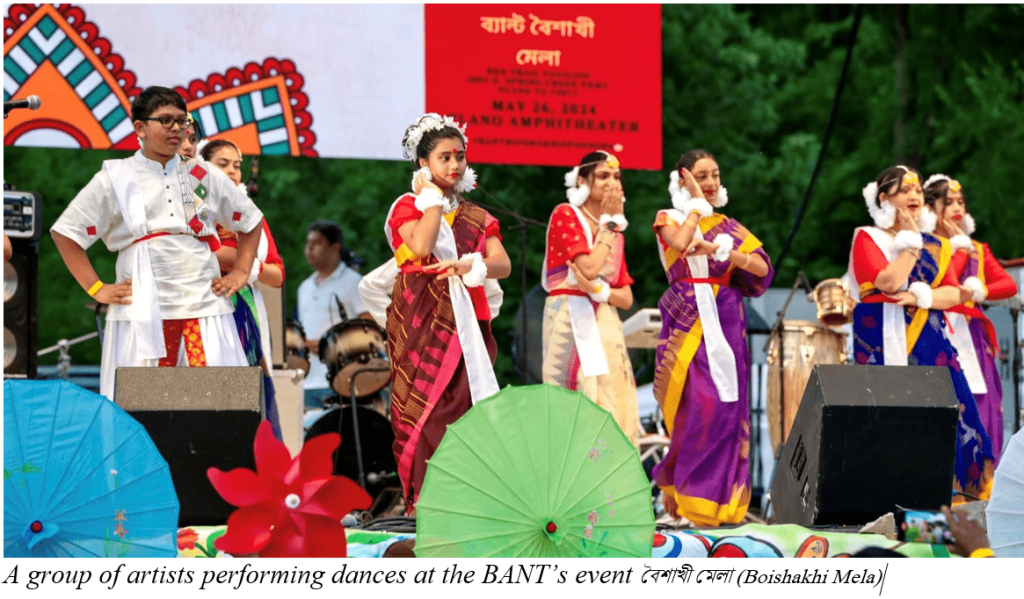
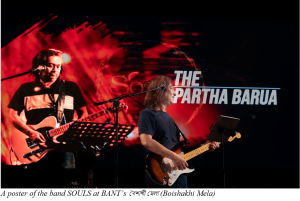
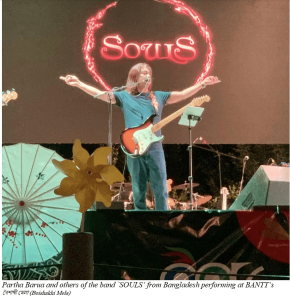
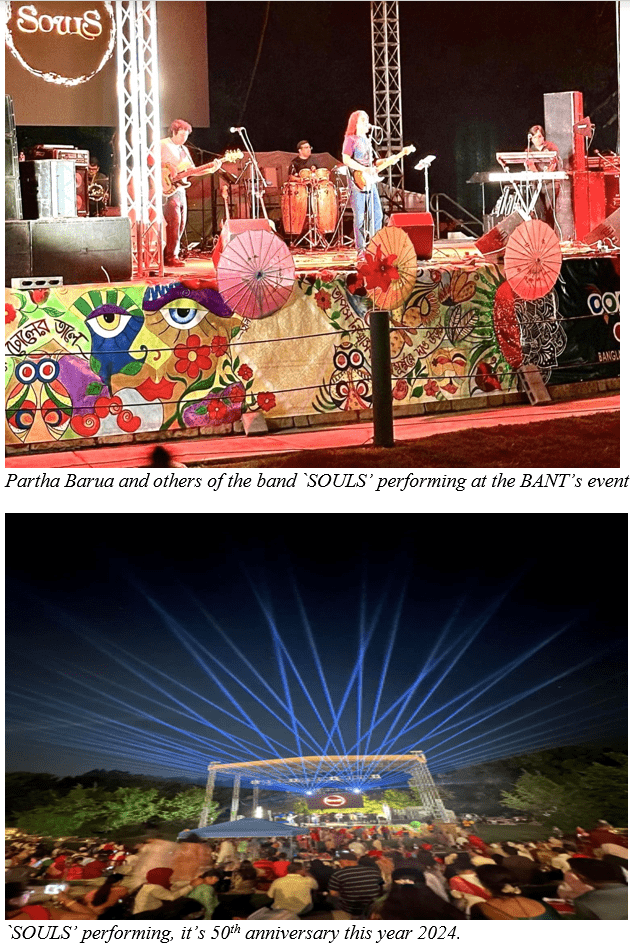

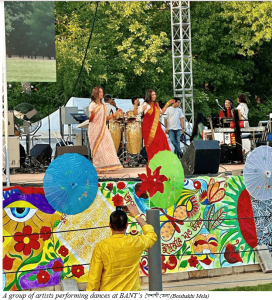
Bengali new year events are the chances for the Bengali diaspora to reconnect with their roots. During these events, the Boishakhi Mela becomes a little Bangladesh where the Bangladeshi people celebrate their rich culture with Bengali songs, dances, Bengali foods and of course the very famous Bengali adda (gossips and story-telling). It is a time for reconnecting and reuniting with greater humanity as Kabiguru Rabindranath Tagore said: “প্রতিদিন মানুষ ক্ষুদ্র, দীন, একাকী কিন্তু উৎসবের দিনে মানুষ বৃহৎ, সে সমস্ত মানুষের সঙ্গে একত্র হইয়া বৃহৎ, সেদিন সমস্ত মনুষ্যত্বের শক্তি অনুভব করিয়া মহৎ” [“Every day man is small and alone; on the day of festival man is great, on that day he is great together with all the people, on that day he feels the power of all humanity!”]

Chowdhury Salahuddin Mahmood
Chowdhury Salahuddin Mahmood hails from Chittagong. He has a B.Sc Engineering (Electrical) degree from the Bangladesh University of Engineering & Technology (BUET) and a M.Sc Engineering (Electrical) degree from the University of Texas at Arlington (UTA). Since January 1998, he has been working for the telecom company Nokia as a Senior Test Engineer. He is actively involved with the Bangladeshi diaspora community in Texas. He was Vice President of the Bangladesh Association of North Texas (BANT, 2004-2007). Since 2006, he has been active with the `Distressed Children & Infants International (DCI), an organization helping the underprivileged children of Bangladesh. Since 2008, he has been active with the Bangladesh Origin New Generation Organization (BONGO), an organization working to help the High school graduates of the Bangladeshi diaspora. In 2007, he started publishing Bangla literary magazine ` অগ্রবীজ’, as one of its founder-editors. This magazine is still in publication. In 2008, founded the BUET Alumni Association (BUETTA) of Dallas-Fort Worth as one of its founders. During 2010-2019, he Acted as the President of the Dallas Bangla Theater (DBT), the premier Bangla drama group in the USA. He writes on topics of literature, culture, and history, and so far published 3 books in Bangla: `বিচিন্তা বিভাবনা’, ‘সময়সাগরতীরে জীবনানন্দ’, ‘বিচিন্তা বিবিধ’.
